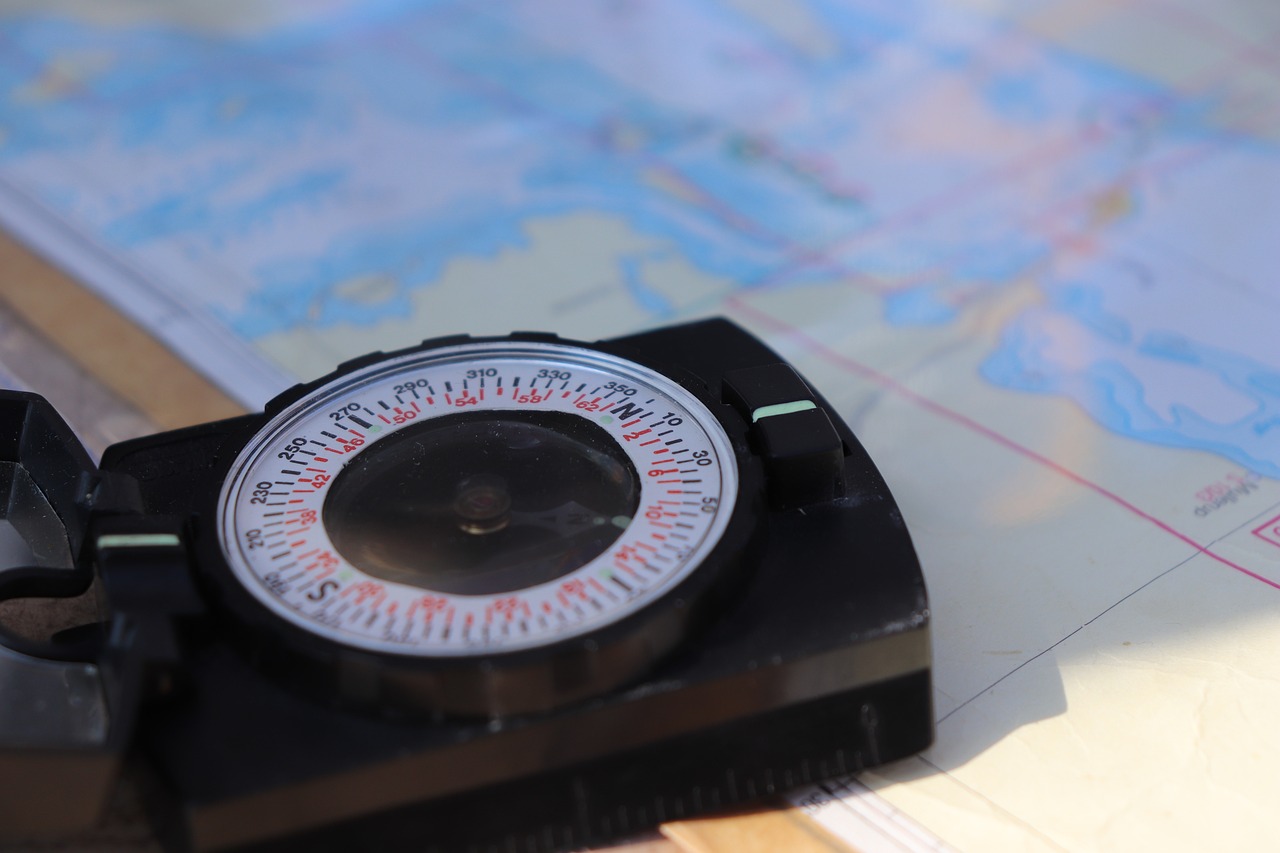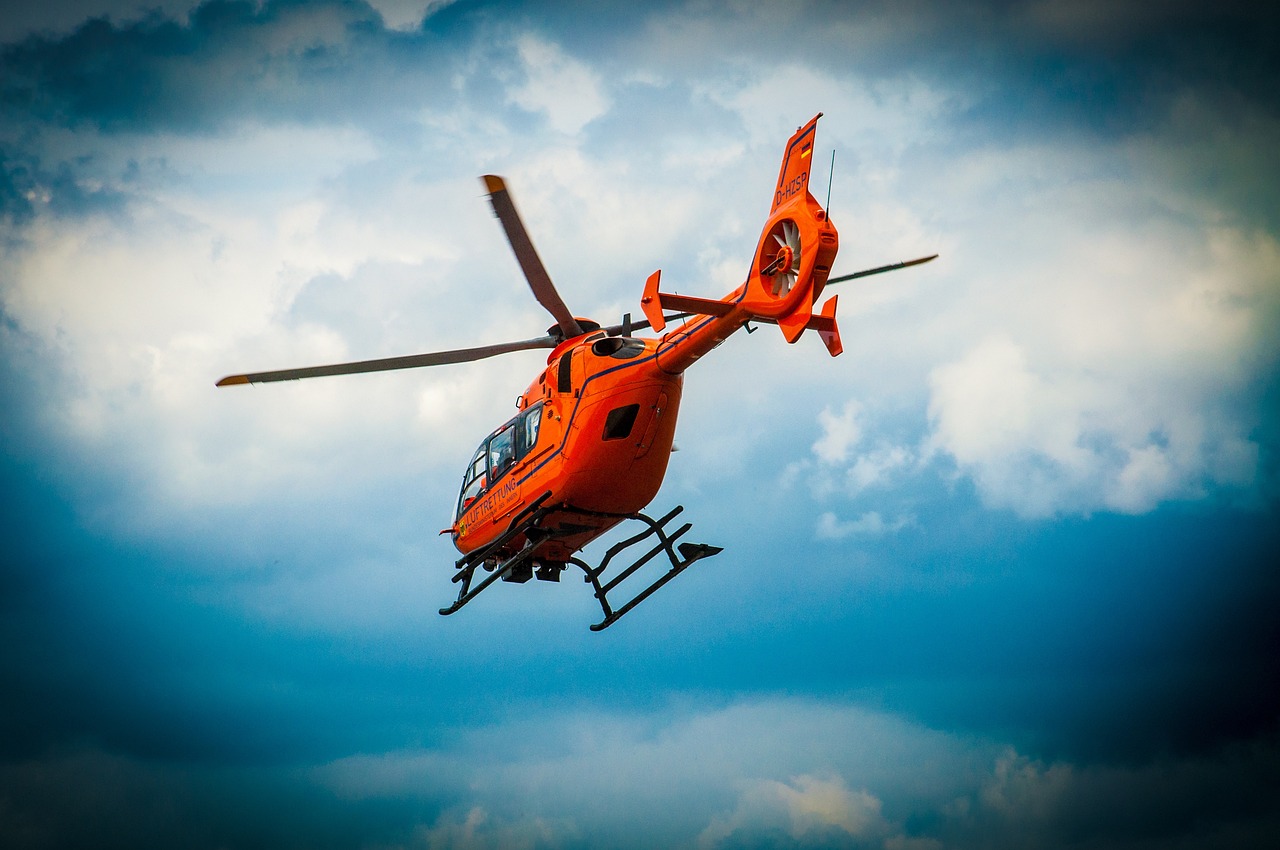How Technology is Enhancing Travel Safety and Security
Travel safety and security have always been top priorities for both travelers and the travel industry. With the rapid advancements in technology, the way we approach and ensure safety during travel has been revolutionized. Let's delve into how technology is playing a crucial role in enhancing travel safety and security worldwide.
Biometric Identification Systems have emerged as a game-changer in the travel industry. By incorporating facial recognition and fingerprint scanning technologies, airports and border checkpoints are now able to streamline identity verification processes. This not only enhances security measures but also significantly improves the efficiency of travel procedures, ensuring a smoother experience for passengers.
Another key innovation is the integration of Smart Surveillance Systems. These advanced systems, powered by artificial intelligence and analytics, enable real-time monitoring and identification of potential security threats in public spaces and transportation hubs. By leveraging technology, overall safety is heightened, creating a more secure environment for travelers.
GPS Tracking and Geofencing technologies have become essential tools in ensuring the safety of travelers and their assets. By implementing these systems, authorities can closely monitor the location of individuals during their journey. In case of emergencies or incidents, quick responses and effective recovery actions can be initiated, enhancing overall safety measures.
Mobile Safety Apps have become indispensable companions for modern travelers. These apps offer real-time alerts, emergency assistance features, and communication tools that keep travelers informed and connected while on the move. With just a few taps on their smartphones, travelers can access vital information and support, enhancing their safety during travel.
RFID Technology for Luggage Tracking has revolutionized the way luggage is handled during travel. By utilizing RFID tags and scanners, the location of bags can be accurately tracked throughout the journey. This not only reduces the risk of lost or misplaced luggage but also provides peace of mind to travelers, ensuring a stress-free travel experience.
Cybersecurity Measures have become paramount in safeguarding sensitive traveler information in the digital age. Robust cybersecurity protocols are implemented to protect personal data and prevent data breaches. By ensuring the privacy and security of traveler data, trust and confidence in digital travel transactions are maintained.
Emergency Response Systems equipped with advanced technology play a crucial role in ensuring swift assistance during critical situations. By leveraging technology, emergency response teams can quickly coordinate and deploy aid in cases of natural disasters, medical emergencies, or security incidents, ensuring the safety and well-being of travelers.
Virtual Reality Training for Security Personnel is transforming the way security teams are prepared to handle security threats. Through immersive virtual reality simulations, security personnel can undergo realistic training scenarios, enhancing their response capabilities and preparedness in ensuring traveler safety.
Blockchain technology is being explored for secure and decentralized identity verification in the travel industry. By leveraging blockchain for identity verification, the risk of identity theft and fraud in travel transactions is significantly reduced. This innovative approach enhances the security and trustworthiness of travel interactions.

Biometric Identification Systems
Exploring the various ways in which technology is positively impacting and improving safety and security measures in the travel industry, ensuring a more secure and reliable experience for travelers worldwide.
The use of biometric technology such as facial recognition and fingerprint scanning to enhance identity verification processes at airports and border checkpoints, increasing security and efficiency.
Biometric identification systems have revolutionized the way travelers are verified, offering a seamless and secure method of authentication. By scanning unique biological traits like facial features or fingerprints, these systems provide a high level of accuracy in confirming individuals' identities. Gone are the days of relying solely on physical documents that can be forged or stolen. With biometric technology, the risk of unauthorized access is significantly reduced, creating a safer environment for all passengers.
Imagine breezing through airport security with just a quick scan of your face, eliminating the need to fumble for IDs or boarding passes. This streamlined process not only saves time but also enhances overall security by ensuring that only authorized individuals can proceed. Biometric identification systems are the future of travel safety, offering a blend of convenience and robust security measures that benefit both travelers and authorities alike.
Furthermore, these systems are continuously evolving to incorporate advanced features such as behavioral biometrics, voice recognition, and iris scanning, further fortifying the authentication process. By leveraging cutting-edge technology, biometric identification systems are at the forefront of enhancing travel safety and security, setting a new standard for seamless and reliable verification methods.
With the integration of biometric identification systems across various checkpoints and travel facilities, travelers can experience a heightened sense of security and confidence in their journeys. The ability to swiftly and accurately verify identities not only expedites the travel process but also deters potential security threats, creating a more secure environment for all passengers.
In conclusion, biometric identification systems represent a significant advancement in travel safety and security, offering a sophisticated yet user-friendly approach to identity verification. By harnessing the power of biometric technology, the travel industry is forging a path towards a safer and more efficient future for travelers worldwide.

Smart Surveillance Systems
Exploring the various ways in which technology is positively impacting and improving safety and security measures in the travel industry, ensuring a more secure and reliable experience for travelers worldwide.
Smart surveillance systems are revolutionizing the way security is monitored in public spaces and transportation hubs. By harnessing the power of advanced technologies such as artificial intelligence (AI) and analytics, these systems can detect and identify potential security threats in real-time. Imagine a network of cameras and sensors working tirelessly to keep a watchful eye on every corner, instantly alerting authorities to any suspicious activity. It's like having a team of vigilant guardians that never sleep, ensuring the safety of travelers and maintaining a secure environment.

GPS Tracking and Geofencing
Exploring the various ways in which technology is positively impacting and improving safety and security measures in the travel industry, ensuring a more secure and reliable experience for travelers worldwide.
The implementation of GPS tracking and geofencing technology has revolutionized the way travel safety and security are managed. By utilizing GPS technology, travel authorities can monitor the precise location of travelers and assets in real-time, enabling quick response and recovery in case of emergencies or incidents during travel. Geofencing adds an extra layer of security by creating virtual boundaries, triggering alerts when travelers enter or exit designated areas. This proactive approach enhances overall safety measures and provides peace of mind to both travelers and authorities.

Mobile Safety Apps
Exploring the various ways in which technology is positively impacting and improving safety and security measures in the travel industry, ensuring a more secure and reliable experience for travelers worldwide.
Mobile safety apps have revolutionized the way travelers can stay safe and connected while on the move. These apps provide a range of features designed to enhance the overall safety and security of individuals during their journeys.
One key feature of mobile safety apps is real-time alerts, which notify users about any potential threats or emergencies in their vicinity. Whether it's a natural disaster, political unrest, or a security incident, these alerts enable travelers to stay informed and take necessary precautions to ensure their safety.
In addition to alerts, mobile safety apps offer emergency assistance functionalities, allowing users to quickly reach out for help in case of an emergency. From contacting local authorities to alerting emergency contacts, these apps streamline the process of seeking assistance during critical situations.
Furthermore, communication tools integrated into mobile safety apps enable travelers to stay connected with their loved ones and emergency services. In times of crisis, being able to communicate effectively can make a significant difference in ensuring a swift and coordinated response to emergencies.
Moreover, some mobile safety apps provide location tracking features, allowing users to share their real-time location with trusted contacts. This feature not only enhances personal safety but also facilitates quick and efficient response in case of emergencies, ensuring that help can reach the traveler promptly.
Overall, mobile safety apps serve as an essential tool for modern travelers, offering a comprehensive suite of safety and security features that empower individuals to navigate the world with confidence and peace of mind.

RFID Technology for Luggage Tracking
Exploring the various ways in which technology is positively impacting and improving safety and security measures in the travel industry, ensuring a more secure and reliable experience for travelers worldwide.
RFID technology has revolutionized luggage tracking in the travel industry. By utilizing RFID tags and scanners, airlines and airports can efficiently track the location of luggage throughout the entire travel journey. This technology significantly reduces the risk of lost or misplaced bags, providing peace of mind to travelers and streamlining the baggage handling process. With real-time tracking capabilities, RFID technology enhances the overall travel experience by ensuring that luggage arrives safely and promptly at its destination.

Cybersecurity Measures for Data Protection
Cybersecurity measures play a critical role in safeguarding sensitive data and ensuring the privacy and security of traveler information in the digital age. With the increasing reliance on technology in the travel industry, robust protocols are essential to prevent data breaches and cyber threats.
One of the key cybersecurity measures implemented is encryption, which involves encoding data to make it unreadable to unauthorized users. By encrypting sensitive information such as personal details, payment data, and travel itineraries, travel companies can mitigate the risk of data theft and unauthorized access.
Additionally, the use of firewalls and intrusion detection systems helps monitor network traffic and detect any suspicious activity that could indicate a potential cyber attack. These security measures act as a barrier against unauthorized access and malicious software, enhancing the overall cybersecurity posture of travel systems.
Regular security audits and vulnerability assessments are also crucial in identifying and addressing any weaknesses in the system that could be exploited by cybercriminals. By conducting routine checks and updates, travel companies can stay ahead of emerging threats and ensure the integrity of their data protection measures.
Furthermore, user authentication methods such as multi-factor authentication add an extra layer of security by requiring multiple forms of verification before granting access to sensitive data. This helps prevent unauthorized access even if login credentials are compromised, reducing the risk of data breaches.
Training and awareness programs for employees are essential in promoting a culture of cybersecurity within travel organizations. By educating staff on best practices, phishing awareness, and data handling procedures, companies can empower their workforce to recognize and respond to potential security threats effectively.
In conclusion, cybersecurity measures for data protection are vital in maintaining the trust and confidence of travelers in the digital era. By implementing robust protocols, encryption technologies, and employee training initiatives, travel companies can enhance their cybersecurity posture and ensure the safety of sensitive information.

Emergency Response Systems
Emergency Response Systems play a crucial role in ensuring the safety and well-being of travelers in various situations. These systems are designed to quickly coordinate and deploy assistance in case of natural disasters, medical emergencies, or security incidents during travel. By leveraging technology, emergency response systems can provide prompt and efficient aid when travelers need it the most.
One key aspect of emergency response systems is their ability to integrate various communication channels to reach out to travelers in distress. Through mobile alerts, push notifications, and emergency broadcast systems, travelers can be informed about potential risks and receive instructions on how to stay safe. This real-time communication is essential in managing crisis situations effectively.
Moreover, emergency response systems often utilize geolocation technology to pinpoint the exact location of travelers in need. By tracking the GPS coordinates of individuals, response teams can swiftly locate and provide assistance, minimizing response times and ensuring timely help reaches those in trouble.
In addition to aiding travelers directly, emergency response systems also facilitate coordination among different response agencies and organizations. By establishing clear protocols and communication channels, these systems ensure a seamless and coordinated response to emergencies, maximizing the effectiveness of rescue and relief efforts.
Furthermore, the use of data analytics and predictive modeling in emergency response systems enables proactive planning and risk assessment. By analyzing historical data and trends, these systems can anticipate potential threats and allocate resources accordingly, enhancing preparedness and response capabilities.
In essence, emergency response systems powered by technology are instrumental in safeguarding travelers and mitigating risks during their journeys. By combining advanced communication tools, geolocation technology, coordinated response protocols, and data-driven insights, these systems play a vital role in enhancing travel safety and security worldwide.

Virtual Reality Training for Security Personnel
Virtual reality (VR) training has revolutionized the way security personnel are prepared to handle various security threats and scenarios. By immersing trainees in realistic simulations, VR technology provides an interactive and engaging learning experience that enhances their skills and decision-making abilities.
Through VR training, security personnel can practice responding to emergencies, identifying suspicious behavior, and implementing security protocols in a virtual environment that mirrors real-life situations. This hands-on approach allows them to develop critical thinking skills and improve their reaction times in high-pressure situations.
Moreover, VR training enables security personnel to familiarize themselves with different locations, such as airports, train stations, and public venues, without physically being present. This virtual exposure helps them anticipate potential security risks and devise effective security strategies to mitigate threats before they occur.
By incorporating VR technology into security training programs, organizations can ensure that their personnel are well-equipped to handle security challenges with confidence and competence. The immersive nature of VR simulations not only enhances learning retention but also cultivates a proactive and vigilant mindset among security professionals.

Blockchain for Identity Verification
Exploring the various ways in which technology is positively impacting and improving safety and security measures in the travel industry, ensuring a more secure and reliable experience for travelers worldwide.
Blockchain technology is revolutionizing identity verification in the travel sector by providing a secure and decentralized system for storing and managing personal information. Through blockchain, travelers can have greater control over their identities, reducing the risk of identity theft and fraud in travel transactions.
Frequently Asked Questions
- How secure are biometric identification systems in airports?
Biometric identification systems in airports are highly secure as they use unique physical characteristics such as facial features or fingerprints to verify a person's identity. These systems are designed to enhance security and efficiency at checkpoints, reducing the risk of unauthorized access.
- Are mobile safety apps reliable for emergency assistance?
Mobile safety apps are reliable tools for emergency assistance as they provide real-time alerts, communication tools, and access to emergency services. These apps can enhance travelers' ability to stay informed and connected during emergencies, improving overall safety and security while traveling.
- How does GPS tracking technology enhance travel safety?
GPS tracking technology enables the monitoring of travelers' locations in real-time, allowing for quick response and assistance in case of emergencies or incidents. By implementing geofencing and tracking systems, travel safety is improved, and the risk of getting lost or being in dangerous situations is reduced.
- What role does blockchain technology play in identity verification for travelers?
Blockchain technology offers secure and decentralized identity verification for travelers, reducing the risk of identity theft and fraud. By utilizing blockchain for transactions and interactions in the travel industry, personal data security is enhanced, providing a safer experience for travelers.



















